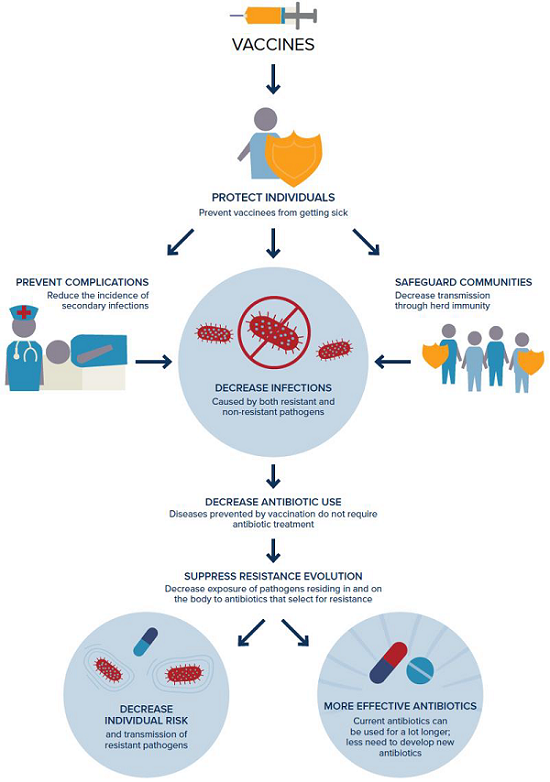News
Influenza vaccination can decrease antibiotic use and therefore reduce antimicrobial resistance
Influenza vaccination can have an impact on reducing antibiotic use and antimicrobial resistance (AMR). An important outcome of our Nivel Report is that vaccination is not often recognized as a measure to reduce antibiotic use at a policy level. Therefore there is a need to increase global awareness and understanding of this topic.
WHO has highlighted the need to increase uptake of influenza vaccine due to its impact on antibiotic use and AMR (Leveraging Vaccines to Reduce Antibiotic Use and Prevent Antimicrobial Resistance: an Action Framework, 2020). Vaccination prevents infectious diseases that are often inappropriately treated with antibiotics, such as influenza, and decreases infections in the community through herd immunity.
A schematic pathway of the impact of vaccines on AMR (WHO Action Framework, 2020), as included in the Nivel Report Influenza Vaccination and Antimicrobial Resistance: Strategic Recommendations

Recommendations
The Nivel Report shows that it is advisable to increase influenza vaccination coverage rates among the general public, risk groups and healthcare professionals. Lessons learned and momentum for vaccination can be gained from the COVID-19 pandemic to improve influenza vaccination coverage rates.
About our research
We performed a literature review (systematic literature review, review of public health reports and national action plans on AMR) and carried out 12 expert interviews to assess the evidence on the association between influenza vaccination and AMR and prepare strategic recommendations. This study was funded by a grant from Sanofi Pasteur.
This research project relates to Nivel's research program Disasters and Environmental Hazards (lead by prof. Michel Dückers, PhD).
